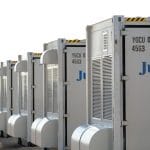Texas Opens Proposals for Offshore Carbon Sequestration Leases

The Texas General Land Office (GLO) has announced a request for proposals (RFP) to lease 1.1 million acres of state-owned offshore areas for carbon sequestration projects. This initiative is a significant step in the state’s efforts to mitigate climate change by capturing and storing carbon dioxide (CO2) emissions from industrial sources beneath the Gulf of Mexico.
Background and Purpose
Carbon sequestration, the process of capturing and storing CO2 to prevent it from entering the atmosphere, is a critical technology for reducing greenhouse gas emissions. Texas, being a major industrial hub, generates substantial CO2 emissions. The GLO’s initiative aims to leverage the state’s vast offshore resources to develop carbon capture and storage (CCS) facilities, thus contributing to national and global climate goals.
The Request for Proposals
The RFP invites companies with expertise in CCS to submit proposals for leasing offshore tracts for CO2 storage. The areas available for lease are located in the Gulf of Mexico, where geological formations are suitable for long-term CO2 storage.
Proposals must be submitted by August 15, 2024, and the GLO will evaluate them based on several criteria, including the technical and financial capabilities of the applicants, their experience with similar projects, and their plans for monitoring and verifying the safety and effectiveness of CO2 storage.
Key Details and Requirements
- Scope of Work: Proposals should outline plans for capturing CO2 from industrial sources, transporting it to the offshore storage sites, and injecting it into geological formations beneath the seabed.
- Technical Expertise: Applicants must demonstrate their technical capability to carry out large-scale CCS projects, including experience with offshore drilling and injection operations.
- Environmental Compliance: Proposals must include detailed plans for ensuring environmental protection, including measures for monitoring and preventing potential leaks of stored CO2.
- Economic Impact: The GLO is also interested in the economic benefits of the projects, such as job creation and contributions to the local economy.
Environmental and Economic Benefits
The successful implementation of offshore carbon sequestration projects is expected to have significant environmental benefits by reducing the amount of CO2 released into the atmosphere. Additionally, these projects could provide economic benefits by creating jobs in the CCS industry and related sectors.
Related Article: RWE and Microsoft Sign 15-Year Agreements for 446 MW of Wind Energy in Texas
Commitment to Sustainability
This RFP reflects Texas’s commitment to environmental sustainability and reducing its carbon footprint. By developing offshore carbon sequestration facilities, the state aims to play a leading role in advancing CCS technology and addressing the challenges of climate change.
The GLO will review the submitted proposals and expects to award the leases by the end of the year. Selected companies will then begin the process of developing the offshore storage sites, including conducting environmental assessments, obtaining necessary permits, and constructing the required infrastructure.












